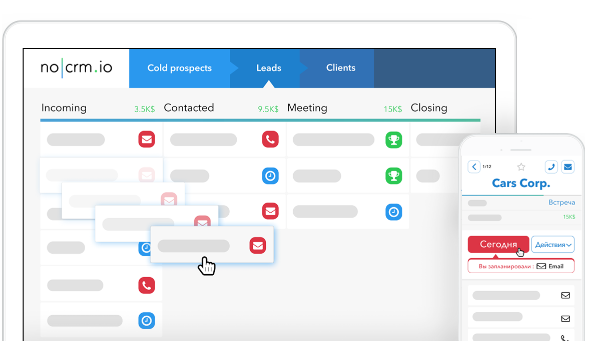
Ever wondered how to get past the gatekeeper in sales? When you hear this term, you might imagine a guard standing at the entry point of a castle, preventing unwanted people from coming through. Or it could be a bouncer at a nightclub, refusing to let people in.
In a business, it works in the same way. It’s the person at the entry point of a business, whose job it is to prevent unwanted movement from coming through.
Companies find it beneficial to place someone as a gatekeeper so that the decision-makers can remain focused on pressing profit-making business instead of being overwhelmed by incoming pitches or information.
Let’s dive in a little deeper into what it is and how you should respond to them.
What Is a Gatekeeper?
You will typically meet the them upon first entry to a company or when you call a company office.
They are there to keep away incoming calls or visitors from reaching the key decision-makers in the business.
They are strategically placed to decide who gets through to decision-makers, preventing interruptions from troublesome callers and visitors.
In case you are not familiar with who they are, here are some examples:
- Receptionist
- Secretary
- Executive Assistants
Gatekeepers maintain the standards and “voice” that define the organization they represent.
They are frontline workers who know the office ins and outs, office politics, and the personal details of the must-know people – someone who has influence in the office and who is aligned.
They don’t just know the decision-makers; they know how the decisions are made.
How Gatekeepers Keep You From Pitching
In most cases, the company’s decision-makers and managers are busy with keeping things running smoothly and productively.
For the most part, encountering a gatekeeper is sometimes like hitting a brick wall and you may feel like you will never get past them. As a result, you’re left asking how to get past them in sales and break through the barrier.
If you want a chance to pitch, then first you need to learn how they think and what you need to do to respond appropriately, keep them on the line, ask the right questions, and find a foot in the door — even if only because they inadvertently say too much.
The harsh truth is that if they don’t want to connect with you, then you won’t get a chance to meet the right VIP, let alone pitch your sale.
In other words, you need to be on the lookout for those whose opinions count and who may hold the purse strings.
You may not succeed with every interaction with the gatekeeper. But if you believe that you can genuinely provide value to the company, there are ways of getting through them.
Good gatekeepers are intuitive and can smell unimportant disruptions from a mile away. They screen visitors and calls and quickly deflect anyone they deem irrelevant, thus shielding and protecting the people in charge.
If anyone isn’t calling to buy something or complain, but rather wanting something for themself, they usually shut them down quickly.
Sorry salespeople.
As a frontline barricade against solicitors, gatekeepers have been through it all.
Any of them would most likely get reprimanded by their boss if they give access to unworthy visitors. This motivates them to carry out their job well.
If you get stuck at the gate, you don’t get to start a relationship with the prospect or get to pitch, which means you won’t get the deal. Fortunately for you, there are things you can do to get past them.
How to Build Rapport and Get Past the Gatekeeper
The golden rule is to let them lead. They have built a toughened skin towards outside people, understandably, because they meet salespeople who resort to trickery to get past them just to reach the decision-makers.
For many inexperienced sellers, it is tempting to view them as junkyard dogs that you can distract with a bone and try to sneak past them. But think twice before you try anything cheesy.
Even though they have a friendly smile, they are professionals who don’t tolerate any funny business from smooth-talking sellers.
What’s worse is that they might just want to get you off the line before they even have heard you say “Good morning” and may be rude, dissimissive, and even downright insulting or hostile.
Becoming frustrated is normal, but a lot of time this is what gatekeepers want:
When you get angry and let that anger show, they can easily take charge of a conversation and push you to say something that justifies their hanging up the call.
So the first and most important thing you can do is to come into the call with a clear and calm state of mind. Take a minute or two before each call to practice some breathing exercises or even meditate.
Find some positive affirmations you can use to maintain a sense of peace and serenity within your personal space. People will feel this energy, and naturally they’ll respond positively to it, even if they seem curt, off-putting, and not interested on the surface.
Whenever possible, try to create a personal connection with them but remember to maintain professionalism. Don’t expose too much. Don’t let any frustration show. Be authentic and personal while still maintaining a sense of professional and respectable decorum.
Try to create a personal touch by remembering their names, engaging in conversation, shaking their hands, and never missing a chance to give a sincere compliment.
It’s not a good idea to lie to them. You may get away with it once but not again. Be truthful, give them your real name, business name, and why you’re calling in.
Here are a few tips to keep in mind when you’re dealing with the gatekeeper:
- Speak with Authority: No one has time to deal with a salesperson who shows a lack of confidence. If you are generally a shy person then suck it in and fake it till you’re past them.
- Express Confidence: Be confident in the product you want to pitch. Impress them with your knowledge and the value of what you want to show the VIP people of the company.
- Mind Your Body Language: From the moment you meet with them, mind your body language. Remember, your body shows more than you know and creates an impression without words.
- Come Prepared With the Right Knowledge: You should know a little bit about the business you’re trying to connect with, and that means knowing more than just what they do or the niche they’re in. You need to look on their social media channels to see what kind of content they share there, check out any free courses they’ve posted on any leading eLearning platforms, download and read free guides they offer, research the history of the business, do enough research to understand its competitive advantages, and do other forms of investigation to ensure you can talk with the them on their territory and say the things they want to hear in the language they want to hear it and in a way that indicates your not just random cold-caller but a possible brand ambassador.
Respect their boundaries because you are at their mercy of getting a chance to meet the people you need to meet. Value their time, and speak with them just as if it was a valued part of the day.
And most importantly, respect the role that they are fulfilling and be authentic. Disrespecting them is disrespecting the company.
We have gone through some tips on how to build rapport with the gatekeeper, but let’s cover things to avoid:
- Relying on your smile
- Acting ‘salesy’
- Ego-high
- Being pushy
Tools to Use to Get Around Gatekeepers
Today, salespeople know the advantage of a consultative selling strategy. But a their main objective is to block off unimportant visitors and this could become demotivating when you’re trying to get past them in sales.
Sellers have learned the value of tapping into personal effects as conversation starters, and researching online is a good place to find this information. They may also create a website and use it for curating content and getting sales leads.
Over time, it’s essential to integrate cloud hosting so that your website is accessible with cloud resources.
A gatekeeper is generally not monitoring their boss’s social profiles and this could be advantageous to you.
Engaging with decision-makers through Twitter, LinkedIn, or Twitter may come across as unprofessional. But it is an option to consider using to get to them without interacting with their gatekeepers.
LinkedIn has become a powerful business platform and most business professionals will use LinkedIn at some point in their career.

Other ways to get past them include:
- Establishing trust by mentioning something you learned during your research of the prospect.
- Trying to get a referral through your network.
- Using email finder services to find the decision-makers contacts and use email marketing tools to send personalized emails.
Pro Tip: Use email tracking solutions to monitor if your email was opened. Jump on the phone if it was. Timing is important.
If they have denied you access to speaking with the decision-makers, request to leave a voicemail for them. Be sure they have heard your name by the time you try to contact them again.
You could also interact with decision-makers on social media and send them a message that demonstrates your value. When you call them later, there will be a good chance they’re expecting you.
How to get past the gatekeeper in sales
Without question, the gatekeeper is the most daunting designation in sales. If they do not like you then you’re probably not meeting the boss or presenting your pitch.
They may not be the decision-makers but they are very important in getting you to the decision-makers.
In fact, they can be a valuable resource loaded with vital information. They’ll know your prospect’s schedule, phone number and other contact information, social media profiles and aliases, and much more.
With the right strategy, you’ll be able to utilize the information bank to your advantage.
If you still fail to get past them. Use the other tips outlined here to contact your prospects directly, introduce yourself on social media, use email finder tools to get their contacts, and more.

This is a guest blog post written by Ron Stefanski from OneHourProfessor.com, a website entrepreneur and marketing professor who has a passion for helping people create and market their own online business.


